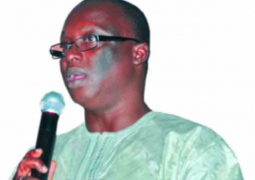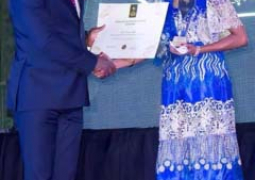It
looks extremely good that Africa is placing emphasis on data collection and
statistics to the point that the continent has set aside November 18 as Africa
Statistics Day, to be celebrated each year by all African countries.
This
line of direction makes sense since it has somehow been realised that data
collection and statistical information is given less attention and importance
in Africa.
Yet
this very aspect of life in any field or society contributes greatly to the
development of that society or domain. This is so because statistics give a
trend in what has happened and can be useful in making predictions on what may
happen in the future.
In
the context of The Gambia, putting statistical data together for up-to-date
information, analysis and possible predictions is a challenge that has been a
thorn in the flesh of our statistical system.
While
Gambia Bureau of Statistics (GBoS) may be trying its utmost best to collect and
disseminate accurate data and statistical information, many institutions,
organisations, entities, departments, agencies and other segments of our
society are lagging far behind in realising the essence of statistical
information and or putting data together for better planning, policy
formulation and national development.
In
his statement marking African Statistics Day, celebrated every year on 8
November, and this year on the
selected theme: ‘Strengthening Economic
Statistics for Regional Integration, Structural Transformation, and Sustainable
Development’, The Gambia’s minister of Finance and Economic Affairs said:
“Every one of us is aware that it is the responsibilities of the Gambia Bureau
of Statistics (GBoS) to disseminate official statistics at all levels of the
Government as these data are used for the formulation of different development
plans and strategies.
“In
fulfilling this responsibility GBoS works closely with both local and
international stakeholders, knowing that better strategies are formed upon
availability of reliable and timely data.
“I
therefore urge all Government Ministries, Departments and Agencies, the private
sector, development partners, and the general public to use statistics in
planning, monitoring and evaluation of different social and economic
development policies in their respective areas and fields.”
This
call by the finance minister hammers the fact that all hands are needed on deck
as our nation trudges through the path of development on the guide of data
collection and statistical information.
This
is important for several reasons especially with regard to the role statistics
play in government and administrations and in the fields of business,
economics, accounting, banking, astronomy, and the natural and social sciences.
Statistics
are really important in helping us make informed decisions on matters arising
from medical studies, disease predictions, weather forecasts, emergency
preparedness, consumer goods, price rise and inflation, genetics, and political
campaigns.
So
let’s do well to adhere to data collection and disseminating accurate
statistical information for better planning, policy formulation and national
development.
“A
strengthened and well-coordinated National Statistical System, equipped with
modern technologies, will help to improve data collection, processing, analysis
and dissemination”.



